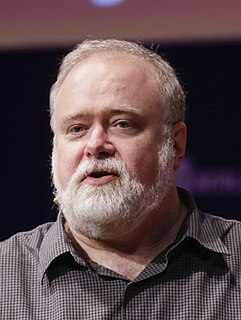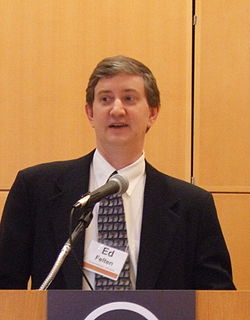A Quote by Robert H. Jackson
The priceless heritage of our society is the unrestricted constitutional right of each member to think as he will. Thought control is a copyright of totalitarianism, and we have no claim to it.
Related Quotes
Under the 1998 Digital Millennium Copyright Act, Tumblr, YouTube, Reddit, WordPress, and Facebook aren't responsible for the copyright infringement of each of their millions of users, so long as they take down specific posts, videos, or images when notified by copyright holders. But copyright holders thought that wasn't good enough.
Of course, corporations and governments have a right to something for their money. They pay the wages. But they don't have the ethical right to literally purchase the copyright of a citizen's potential contribution to society. In a democracy they should not have the legal right to silence the quasi-totality of the functioning élite in order to satisfy a managerial taste for control and secrecy.
Authors have a greater right than any copyright, though it is generally unacknowledged or disregarded. They have a right to the reader's civility. There are favorable hours for reading a book, as for writing it, and to these the author has a claim. Yet many people think that when they buy a book they buy with it the right to abuse the author.
I think intellectual property is more like land, and copyright violation is more like trespass. Even though you don't take anything away from the landowner when you trespass, most people understand and respect the laws that make it illegal. The real crime in copyright violation is not the making of the copies, it's the expropriation of the creator's right to control the creation.































